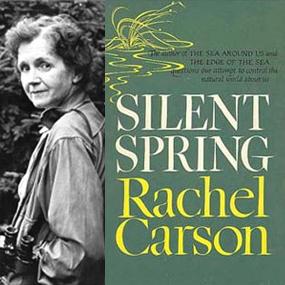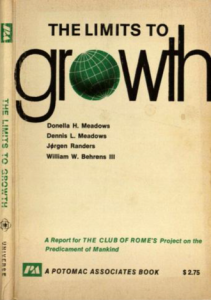Stay tuned for a Twitter takeover from @brad_badelt, talking about his story: https://thewalrus.ca/is-a-four-day-work-week-the-secret-to-saving-the-planet/">https://thewalrus.ca/is-a-four...
Hey, @brad_badelt here. Pop quiz: What’s the bestselling environmental book of all time? 1/11
If you guessed Rachel Carson’s Silent Spring, well, you’d be wrong (a few months ago, I would have guessed the same). 2/11
The correct answer is The Limits to Growth (1973)—it’s sold a whopping 30 million copies worldwide. But, unlike Rachel Carson’s poetically written book, The Limits is a bit of a slog. It’s about the fate of our species as predicted by an MIT computer model called World3. 3/11
According to World3, if our population and economy continued to grow at the same pace, our planet would be decimated by around 2050. 4/11
Back in the ’70s, The Limits was must-read stuff. This was during a time of oil shortages and widespread drought and starvation in parts of the world. People were rightly panicked. 5/11
But, eventually, we moved on. Oil started flowing again, gas station lineups were no more. Limiting growth was relegated to the dustbin of wacky ideas that sounded good at the time (think El Camino). 6/11
Last fall, I stumbled upon a musty hardcover edition at my local library. Fifty years on, The Limits’ predictions have proven to be remarkably accurate so far. 7/11
The book sent me down a rabbit hole trying to answer one question: Could working less and buying less stuff save the planet? Which led me to the “degrowth” movement and, eventually, to a donkey named Jujube. 8/11
What I learned is that degrowth is about way more than just not shopping. It’s a radically different worldview: putting the brakes on capitalism, providing a universal income, reducing work weeks, sharing more, helping our neighbours. 9/11
For degrowth supporters, it’s a way to tackle climate change. But it’s also about addressing inequity and poverty. And living happier, more meaningful lives. Degrowth no longer seems like a fringe idea—it feels more relevant than ever. 10/11
Thanks to The Walrus for sharing their Twitter account for this thread. You can read my story here: https://thewalrus.ca/is-a-four-day-work-week-the-secret-to-saving-the-planet/">https://thewalrus.ca/is-a-four... @brad_badelt signing off! 11/11

 Read on Twitter
Read on Twitter




